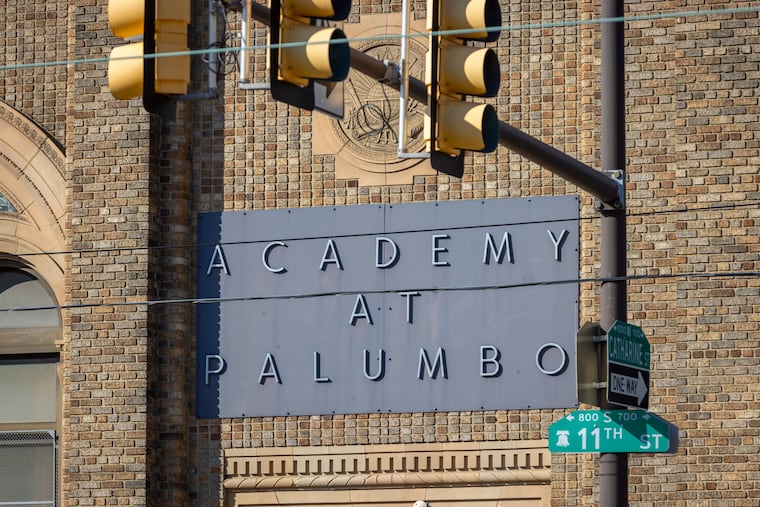The Philly criteria-based admissions process is changing again. Here’s what to know when applying for the 2025-26 school year.
The application window opens Sept. 13 at 4 p.m. and closes at the end of the day on Oct. 23.

Philadelphia School District officials are changing the system’s selective admissions process again, allowing students for the first time to rank up to five schools by preference in their applications.
Students can begin applying to any public school that has room to accept them for the 2025-26 school year on Sept. 13 at 4 p.m. The selection window closes at the end of the day Oct. 23.
Superintendent Tony B. Watlington Sr. said in a statement Friday that the district had partnered with a new technology provider that would result in a less confusing process for families, give more students an initial offer, shorten the time in which students get acceptances, and cut down on the time it takes to fill open seats in public schools across the city.
Watlington said the changes came in response to feedback from families and students.
Three years ago, the district made sweeping changes to the way it admits students to its 39 criteria-based admissions schools, moving to a centralized lottery rather than giving principals discretion over who was admitted. The shift happened in the name of equity; some of the district’s magnet schools’ racial demographics did not match the city’s, with an overrepresentation of white and Asian students and an underrepresentation of Black and Latino students.
The changes proved controversial and did not solve the inequity issues, though some progress was made in the percentage of Black and Latino students applying to and getting into selective admissions schools. Some schools, including Masterman and Central, still are underrepresented among those groups.
Watlington said the district had partnered with a company called Avela to launch a tool it’s calling Explore to provide information about schools to those applying.
Here’s what’s changed:
Students will be able to rank their top five school choices. In the past, eligibility and seats available were considered exclusively. Now the new system uses an algorithm to generate the best offer based on the student’s eligibility as well as their preference based on ranked choice.
Students will receive only one offer during the first phase of acceptances. In the past, some students were accepted to multiple schools, and other students were completely shut out — even though they were eligible for some or all of their choices. Now, offers can continue in a second phase based on the order students ranked their choices, their eligibility, and available seats.
Students will remain on the wait list only for higher-ranked schools for which they qualified but did not receive an offer. The district offered this example: If a student received an offer to their No. 3 school, they would remain on a wait list for their first and second choices, but would be automatically declined for their fourth and fifth choices. If they eventually receive a wait list offer for their second choice, they could accept that offer — and their third choice offer would be automatically declined, but they would stay on the wait list for their first choice. If they eventually received a seat at their first choice, they could accept that seat.
The district will still consider grades, attendance, and state standardized test scores, and give preference to students who live in certain underrepresented zip codes for admission to Academy at Palumbo, George Washington Carver High School of Engineering and Science, Central High, and Masterman.
(The district said it would no longer consider the Pennsylvania Alternate System of Assessment, or PASA, as a standardized test score for purposes of school admissions. Some students with disabilities take the PASA rather than the PSSA, or Pennsylvania System of School Assessment, which is given to the vast majority of students in public schools.)
The zip codes considered for preference have changed slightly for the coming year: Those with preference are 19140, 19133, 19132, 19136, 19124, and 19134.
Eighth-grade students who attend Carver, GAMP, Hill-Freedman, Masterman, and Science Leadership Academy at Beeber will still automatically be admitted to those schools for high school if they meet that high school’s criteria, a change that was put in place for the 2024-25 admissions cycle.
Reaction to the changes
The changes drew early praise from Lauren Overton, the veteran principal of Penn Alexander, the West Philadelphia district K-8 school.
“I think it’s a good move,” said Overton. “I’m hopeful that ranked choice is going to make things more equitable and give more opportunities to more kids across the board.”
School selection can be a stressful process for families, and “I’m hopeful that this will give more people more hope moving forward,” Overton said. “I will give the district credit that they’ve been trying to make changes as they receive feedback. I know that ranked choice is something that people really advocated for. I’m hopeful that this will help out with the wait list issues that have happened in the past.”
Walette Carter, president of the citywide Home and School Council, said the tweaked method of school selection “has its advantages,” but she said it “could still be confusing to parents.”
And while she worries about equity in admissions at some district magnets, Carter said, she’s also worried about equity at the K-8 level that prevents some students from qualifying for top city schools.
“A lot of these neighborhood schools don’t have algebra, so the kids can’t get into Masterman, anyway,” Carter said.